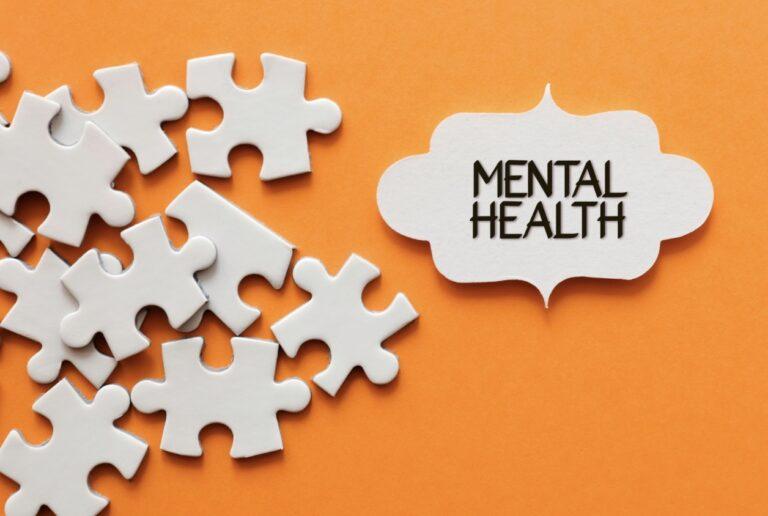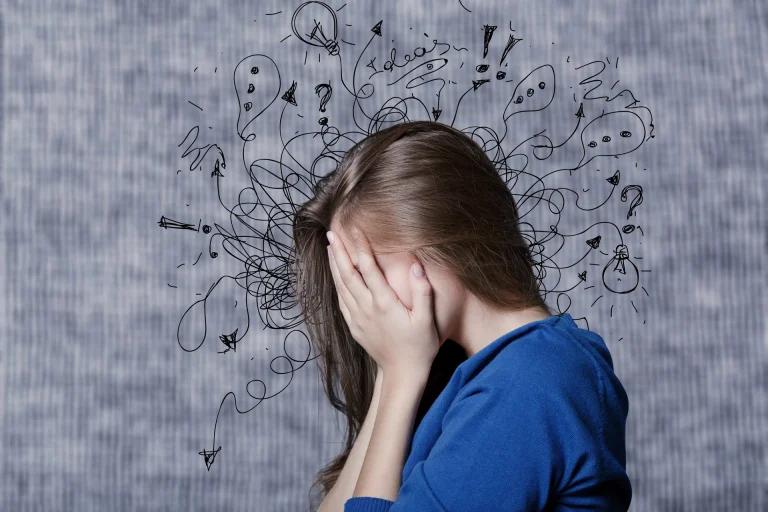Anxiety is a serious disorder that can take a real toll on your wellbeing and daily life. It’s the most common mental disorder in the US, affecting 40 million adults (18% of the population), 14% of the men.
The good news is that anxiety usually responds well to treatment, but the bad news is most people with anxiety in the US don’t seek treatment, especially men. One reason is that it can be hard to know if you have an anxiety disorder. Anxiety is natural and all of us experience it at some time, so how can you be sure if what you’re feeling is normal every-day anxiety or if it has become something more?
We’re here to help. As part of our contribution to Movember, we’re talking openly about men and mental health. Here, we’re going to talk about anxiety, including anxiety symptoms in men, and how to tell if you have anxiety.
What is anxiety?
Anxiety is an emotion and a physical state. Anxiety makes you feel worried, nervous, tense, panicked, and frightened. Physically it can make your heart beat faster, breathing speed up, and make you feel nauseous and trembly.
Although all of this can feel intense, this is usually natural anxiety that’s brought on by stressful situations. When we talk about anxiety as a mental health issue, we’re talking about more than this. We’re talking about anxiety disorders.
What is an anxiety disorder?
Most anxiety passes quickly and doesn’t have a lasting effect on you. However, if your feelings of anxiety become frequent, long-lasting, particularly intense, and make it difficult to live your daily life, your everyday anxiety may have crossed over to an anxiety disorder.
Anxiety disorders are a group of mental disorders that cause intense bouts of anxiety that disrupt your life. They include:
Generalized anxiety disorder – this is the most common anxiety disorder and is what most people mean when they talk about anxiety as a problem. It causes you to have severe, frequent, long-lasting, and debilitating bouts of anxiety that feel out of proportion to the events that trigger them.
Social anxiety – is anxiety brought on by a fear of being judged, embarrassed, humiliated, or rejected by other people, usually strangers. It can make you feel scared about interacting with other people and make you avoid social situations.
Post-traumatic stress disorder – is caused by thinking about and/or re-living previous traumatic incidents, like accidents, abuse, or events in military combat.
Panic disorder – is when your anxiety becomes so severe it can overwhelm you and make you have anxiety attacks, also called panic attacks. These can be so intense you can feel like you’re having a heart attack or even feel like you’re dying.
Obsessive-compulsive disorder (OCD) – obsessions are intrusive and unwanted thoughts that cause anxiety. Compulsions are the behaviors the person feels compelled to perform in order to ease their distress or anxiety.
What are the symptoms of anxiety in men?
People can experience anxiety disorders differently, and men may experience some symptoms more than women. The following physical and emotional symptoms can be signs that you have an anxiety disorder:
- A rapid heart rate and heart palpitations
- Shortness of breath
- Feelings of choking
- Nausea
- Shaking and trembling
- Disorientation
- Dizziness
- Confusion
- Compulsive behaviors
- Worry out of proportion to what’s causing it
- Feelings of fear and dread
- Feeling restless, keyed up, or on edge
- Irritability and being quick to anger
- Emotional and social withdrawal
If you’re asking yourself, “do I have anxiety?”, this list of symptoms can help. But ultimately, you may have an anxiety disorder if you feel like your anxiety is disproportionately strong, comes on too often, lasts longer than it should, and it’s disrupting your everyday life.
What causes anxiety in men?
So, what causes men to have anxiety? The causes of anxiety are usually complex with a range of factors combining to trigger your condition. They can include a mixture of:
- Everyday life worries, such as stress at work, financial difficulties, and problems in your relationships
- Sudden traumatic and highly stressful events, like a job loss, abuse, or a bereavement
- Your brain chemistry, including imbalances in a type of molecule in your brain, called neurotransmitters
- Diseases that may bring anxiety on, particularly long-lasting (chronic) diseases
- Some medications can cause anxiety as a side-effect
- Alcohol and recreational drugs
- Your genetics may make you more prone to developing an anxiety disorder
- Your personality may also make you more likely to develop an anxiety disorder
Where to get a diagnosis for anxiety?
As anxiety is a complicated condition, and there’s no simple test to see if you have an anxiety disorder. A qualified mental health professional will have to take the time to assess your condition to give you a reliable diagnosis. You’ll also need to undergo some medical tests to rule out alternative physical causes of your condition.
The best first step is to make an appointment with your family doctor. They can make an initial judgement, take appropriate tests, and help arrange for you to see specialists.
Can anxiety affect you sexually?
Anxiety can distract you and can make it harder for you to get sexually aroused. You may lose your interest in sex and have difficulties getting or maintaining an erection (erectile dysfunction).
Does anxiety turn into anger?
Anxiety is expressed in different ways in different people. It can lead to frustration, irritability, and anger in some people, particularly if it’s left untreated.
How is anxiety treated?
If you have anxiety, you’ve got a range of treatment options. Anxiety often responds well to treatment, but you may have to experiment with different treatments to find those that work best for you.
Anxiety treatments include:
- Therapy – including psychotherapy and cognitive behavioral therapy, where you explore and rectify detrimental thoughts, emotions, and patterns of behavior
- Medications – like antidepressants and other mood-altering medicines
- Positive lifestyle changes – like getting regular exercise, eating a healthy diet, and cutting back on alcohol and recreational drugs
- Finding ways to reduce stress – like meditating, focusing on healthy pastimes, or spending time with family and friends as stress is often at the heart of anxiety
What do you say to an anxious man?
If you’re with a man who’s experiencing rising anxiety, try to get them talking. Ask how you can help, tell them you’re there to listen, and offer them the support they need. Don’t try to dismiss their anxiety and tell them they have nothing to worry about or that their anxiety is normal. Also, try to refrain from offering your own advice. Just listen and support them based on what they say.
Where to find support for anxiety?
In addition to treating your anxiety, you can get access to a range of different types of support for your anxiety and any other mental health issues. Movember is a great resource for support, and they’ve pulled together a list of other organizations that can offer support too.
Sources
Medical Disclaimer
NowPatient has taken all reasonable steps to ensure that all material is factually accurate, complete, and current. However, the knowledge and experience of a qualified healthcare professional should always be sought after instead of using the information on this page. Before taking any drug, you should always speak to your doctor or another qualified healthcare provider.
The information provided here about medications is subject to change and is not meant to include all uses, precautions, warnings, directions, drug interactions, allergic reactions, or negative effects. The absence of warnings or other information for a particular medication does not imply that the medication or medication combination is appropriate for all patients or for all possible purposes.









